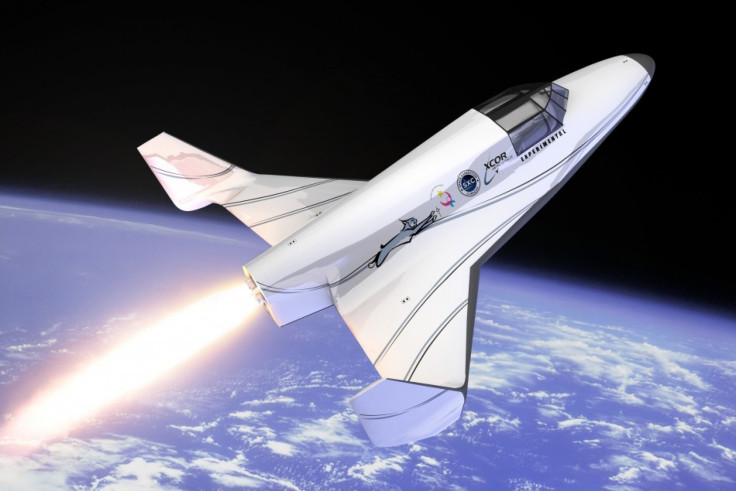Companies Pursue Space Tourism, But Progress Lagging

Private sector companies continue to gear up for a space race that will take tourists into space, but progress has lagged.
Companies have lined up to become space travel agents, a particular lure for space enthusiasts, but no launch dates seem to have been set.
It's tough, Erika Wagner, senior director of prize development with the X Prize Foundation told The Associated Press. The X Prize Foundation is a nonprofit that offers incentives to the private sector to develop space travel. We've seen slower progress than a lot of people would have liked.
One success, Virginia-based Space Adventures, has already had eight orbital spaceflight missions for private citizens to the International Space Station, including financier Dennis Tito, according to company spokesperson Stacey Tearne.
The company is partnered with Armadillo Aerospace for a suborbital spaceflight program, and no launch date has been set, Tearne told IB Times in an email.
Once specific technical and safety milestones are met, we will announce more details and opportunities for commercial flight, Tearne wrote.
Blue Origin, a private company, was being particularly tight-lipped about its activities, including a recent accident, The Associated Press reported, but there seemed to be activity at the company.
The home page of the company's Web site is currently devoted to job recruitment. The company has immediate openings for 12 engineering jobs, most of which would be based in Kent, Wash.
Though progress is slow, companies are pushing forth, even as most rockets remain on the ground. For now.
Starchaser Industries, a space tourism startup based in the U.K., plans to launch a rocket containing a crash test dummy in Sept.
This flight will be a full scale dress rehearsal for the manned launches to follow, Starchaser CEO Steve Bennett said in a statement provided to IB Times.
The rocket launch is expected at the Southport Air Show in England's Merseyside county, said Starchaser outreach manager Danny Ovens.
The rocket, with a crash test dummy loaded in the capsule, will help gather information before sending actual humans away in it, according to a company statement.
The launch of the Nova 2 rocket will be the next significant milestone in our bid towards opening the space frontier for Britain, Bennett said in a statement. Our recently developed environmentally friendly propulsion system will be mounted inside a previously un-flown Starchaser 4 rocket to evaluate a number of safety features including an emergency Launch Escape System.
Officials with XCOR Aerospace, a small company focused on developing reusable rocket launchers to space, said that fundraising remained a challenge in the private space tourism sector.
This is a very very very new sector and a lot of people are taking a 'wait and see' approach to it, which is understandable, XCOR Aerospace spokesperson Mike Massee told IB Times.
Massee noted that XCOR is past that and currently hiring.
XCOR is also developing Lynx, a space transport vehicle that will take passengers 60 miles up into the air in a suborbital trajectory. Passengers will go up, experience weightlessness for three to four minutes, and then go back to earth, all within 30 to 35 minutes.
XCOR estimates it will test a Lynx prototype, Mark I, in 2013. Mark I will have at least one pilot.
Mark II is estimated for testing in 2014, at which point XCOR believes it will see people in space, if all goes well.
It really depends on large variety of factors, Massee said.
© Copyright IBTimes 2024. All rights reserved.





















